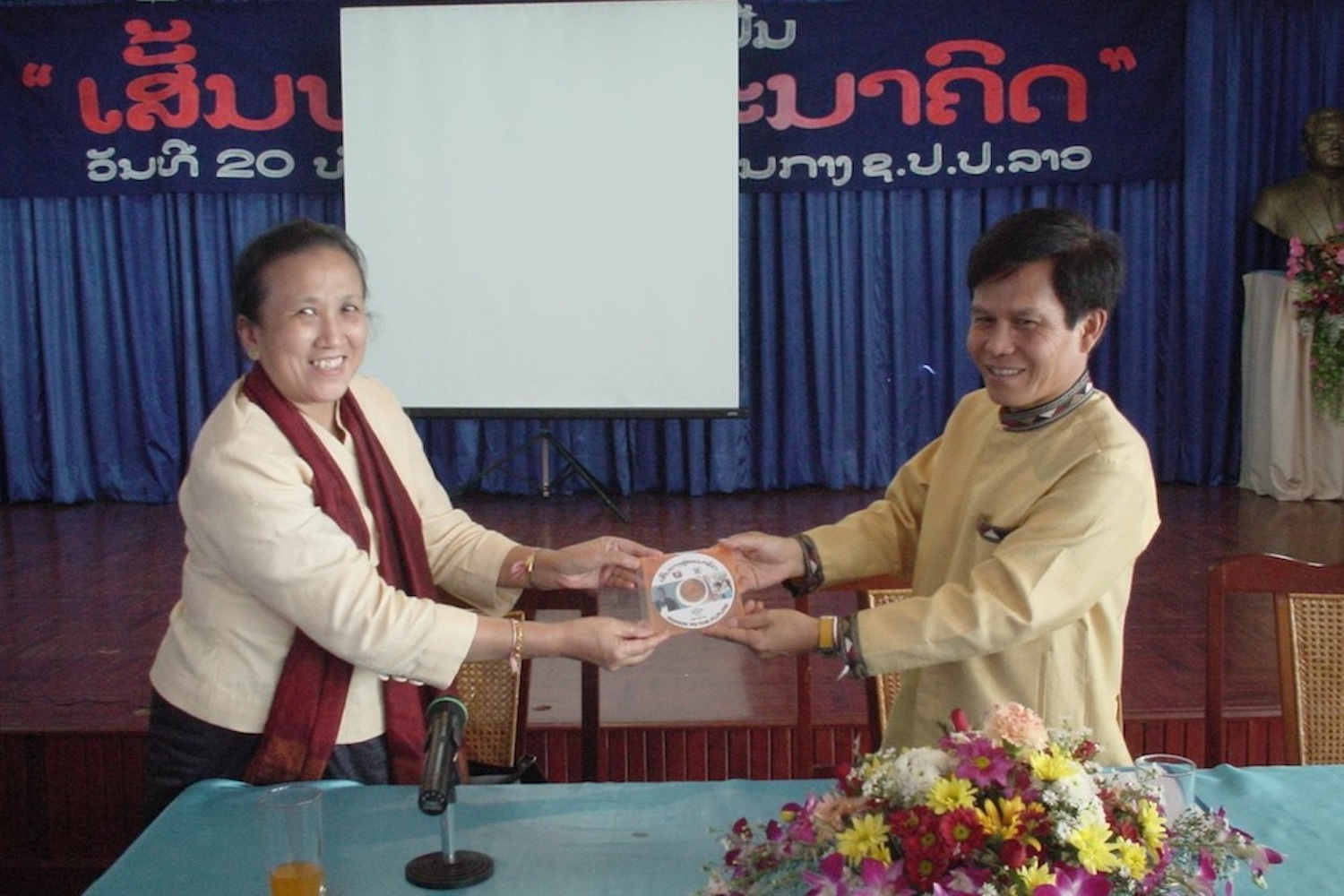Honolulu Star Advisor: 06 September 2016

A top aide of President Barack Obama said he will meet with the wife of a missing Laotian activist and East-West Center graduate, whose case has been repeatedly highlighted by human rights groups as an example of authoritarian excesses of Laos’ one-party Communist government.
Deputy National Security Adviser Ben Rhodes told reporters today he will meet with Shui Meng Ng on Thursday while Obama is visiting Laos. The president arrived on Monday to attend a regional summit.
Human rights activists were hoping that Obama would speak about Ng’s husband, Sombath Somphone, who was picked up apparently by security forces on Dec. 15, 2012. He has not been seen since.
Obama has not mentioned him so far in his public remarks, but Rhodes said that “we care very deeply about her case and her husband, and we believe she deserves to know what happened to her husband.”
He said he also met Ng during a recent visit to Laos, and planned to stay in “regular contact” with her. Rhodes said the Laotian government has told the U.S. the same thing it tells Sombath’s wife — that it’s looking into his disappearance.
“Oftentimes, they indicate that they do not know, and that there’s an ongoing investigation,” Rhodes said.
He said that typically, Obama addresses human rights issues with foreign leaders more broadly, and lets his staff raise specific cases with their counterparts.
Sombath’s disappearance was captured on a traffic video camera, in which he is seen being stopped at a police outpost in Vientiane and asked to step out of his Jeep, according to Amnesty International. Within a few minutes a man on a motorcycle arrives, drives away Sombath’s vehicle, and a pickup truck takes Sombath away with armed people on a motorcycle leading the way. The passenger on the motorcycle fires a gunshot into the air, Amnesty International said.
The human rights group said it believes the authorities are either directly responsible for his disappearance, or have simply failed to take steps to find out what happened to him.
“President Obama and world leaders gathering in Laos need to demand answers and accountability from their Lao government hosts on the case of disappeared NGO leader Sombath Somphone. The message has to be clear that the cover up has to end, Sombath needs to be found, and that no other outcome is acceptable,” Phil Robertson, deputy director for Asia at Human Rights Watch, said today.
The U.S.-educated Sombath mostly worked in rural development, showing farmers creative ways to raise fish and make handicrafts. But he was also vocal about land deals that left thousands of villagers homeless without compensation, sparking rare political protests. He also had international connections.
Sombath graduated from the University of Hawaii through an East West Center program with degrees in education and agriculture before returning to Laos in 1980. He won one of Asia’s top civil awards, the Magsaysay Award, sometimes called Asia’s Nobel Prize, in 2005 for his work reducing poverty and promoting education at a training center he founded.
Sombath is not the only possible victim of a government crackdown.
In 2015, an ethnic Lao who is a Polish citizen disappeared while visiting Laos, according to his Polish wife, allegedly for posting critical comments on Facebook. He was subsequently sentenced to 4 years and 9 months in prison.
In March this year, three young Laotian migrant workers who returned to Laos to renew their passports vanished and reappeared on state TV in prison uniforms to state that they had used the internet to “defame the government.” They have not been charged and their parents have not been allowed to visit them. Another dissident, Ka Yang, who fled to Thailand was deported to Laos in 2011 and imprisoned.
Most Laotians are unaware of such events because of the government’s tight control over the media, the security forces and the judiciary.

